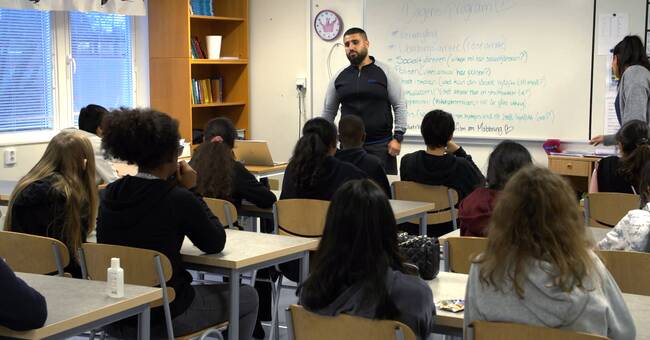In recent years, there has been an increase in lethal firearm violence in criminal settings.
At the same time, the number of perpetrators and victims in adolescence has increased.
Parents often see the warning signals too late, according to Patrik Balint, social secretary in the social services in the Rinkeby-Kista district.
- When parents are aware of the problems, they are usually very cooperative.
But the parents should have time to be worried enough to receive the help and then it may have already gone too far, he says.
"My parents did not know"
Such was the situation for Mehdi Adnan Mossa, who today is a school curator and lectures on preventive work to reduce crime.
- My parents were not included in my life outside the home, they did not know the language and were not integrated into society.
When letters came home from the police and the social services, I was the one to translate the information, he says.
In this way, Mehdi managed to hide information from his parents, while living a heavy criminal life that began as early as the age of 15.
Although he has a great understanding of the challenges his parents struggled with, such as mental illness after fleeing war, he wishes they had been more involved at an earlier stage.
- My parents did not know what I was doing, they did not know who I hung out with or how it went for me at school.
Many parents struggle hard
The social services also point out that parents do not know enough about the child's life outside the home.
But they also meet many families and parents who are very committed and fight hard for a turnaround, says Helén Öhman, deputy unit manager within the social services in Rinkeby-Kista district administration.
- When we have sufficient concern among adults, who are prepared to do a job, then we also have very good chances to turn this around.

